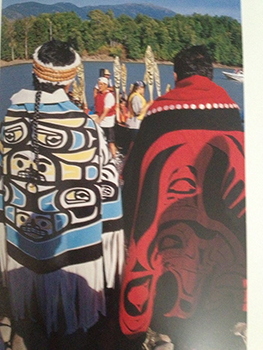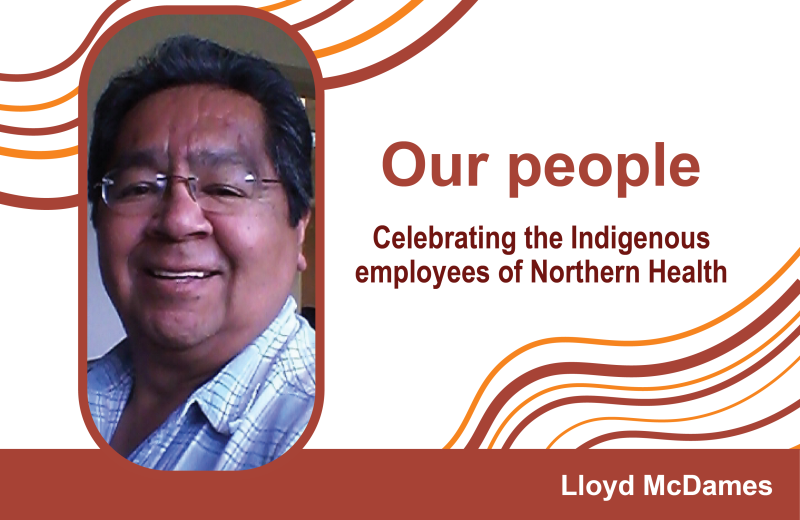June is Indigenous History Month. This is a time for all Canadians – Indigenous, non-Indigenous, and newcomers – to reflect on and celebrate the history, heritage, and diversity of First Nations, Inuit, and Métis Peoples in Canada.
At Northern Health, we want to celebrate our Indigenous colleagues who contribute in countless ways to help us uphold our commitment to building a health system that honours diversity and delivers culturally safe services by providing respectful and inclusive programs and initiatives across Northern BC.
Whether they are an Indigenous Patient Liaison, a Nurse Practitioner, or the VP of Indigenous Health, the Indigenous employees of Northern Health are our friends and neighbours, and we want to get to know them better! To that end, we’ll be sharing interviews and conversations with Indigenous workers at Northern Health about their roles and experiences in their professions during the month of June.

An introduction from Lloyd McDames: Aboriginal Patient Liaison Worker, Mills Memorial Hospital, Terrace, BC
Ama Sah! Good day! My Traditional name is Gwin Naxnuutkw, and my English name is Lloyd McDames. I am Gispudwada (killerwhale clan) from Gitselasic (Kitselas) of the Tsimshian Nation.
I am the Indigenous Care Coordinator at Mills Memorial Hospital in Terrace. I have been employed by Northern Health since 2013. At that time I was in the process of applying to return to school to be a registered nurse, but I was the successful applicant for the Aboriginal Patient Liaison.
I have always been in a role of being a helper, or supporter of others. I was a correctional officer, a probation officer, a BC Parole Board member, a child welfare social worker for Aboriginal agencies in the Nass Valley, Terrace, Victoria, and Hazelton. I have bachelor’s and master’s degrees in social work from the University of Victoria.
I have been inspired by aunts, uncles, and other family members to always do the best I can to help others in need and to share what I can when I can; be that of my time, foods (traditional) and to not judge others as we do not always know their journey, story, or challenges. Respect all people (Looda sila gyedn).
I enjoy working with Indigenous people in need of health care and spending time with them as most may be elderly, far from family, and lonely. To listen to their stories and create space for them.
I like that physicians and nurses reach out to me (from any hospital department) for help and assistance in supporting and assisting Indigenous people and families within the context of cultural values, traditions, and beliefs as well as presenting to new student nursing classes.
The best day at work and a significant memory for me was when we as a hospital team were able to accommodate the wishes of a palliative patient and family wishes to go home despite all obstacles.
I am hopeful that in some small way I am able to contribute to the education and awareness for both Indigenous and non-Indigenous people the importance of cultural safety and cultural awareness and to be respectful at all times in our actions and words as we are all human and together, we can better understand one another to improve health care outcomes.
Gyilks aamaniisgn (take care of yourself),
T’ooyax sut’nuun (thank you).














Comments